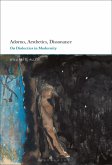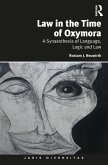Considering Butler's "tragic trilogy"-a set of interventions on Sophocles' Antigone, Euripides' Bacchae, and Aeschylus's Eumenides-this book seeks to understand not just how Butler uses and interprets Greek tragedy, but also how tragedy shapes Butler's thinking, even when their gaze is directed elsewhere. Through close readings of these tragedies, this book brings to light the tragic quality of Butler's writing. It shows how Butler's mode of reading tragedy-and, crucially, reading tragically-offers a distinctive ethico-political response to the harrowing dilemmas of our current moment.
Deeply committed both to critical theory and political activism, Judith Butler is one of the most influential intellectuals today. Their ideas have touched the lives of many people, both readers and those who have never heard Butler's name. In encompassing gender performativity and sexual difference, vulnerability and precarity, disidentification and bodily interdependency, as well as the politics of protest, Butler's work is often predicated on a strong engagement with or proximity to Greek tragedy.
Deeply committed both to critical theory and political activism, Judith Butler is one of the most influential intellectuals today. Their ideas have touched the lives of many people, both readers and those who have never heard Butler's name. In encompassing gender performativity and sexual difference, vulnerability and precarity, disidentification and bodily interdependency, as well as the politics of protest, Butler's work is often predicated on a strong engagement with or proximity to Greek tragedy.









